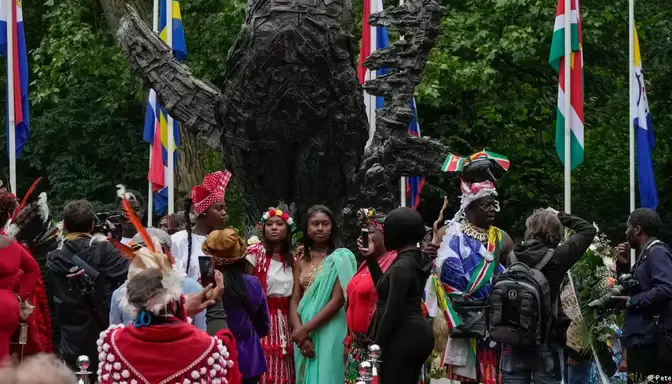Diksia.com - For the second time in six months, Amsterdam district representative Vayhishta Miskin prepares for a historic event, one that may have been unimaginable for many Surinamese descendants like herself.
Following Dutch Prime Minister Mark Rutte’s apology for the historical slave trade in Suriname and his promise of €200 million for educational initiatives in December, King Willem-Alexander delivered a formal apology on Saturday, July 1, 2023.
“What people have told me is that they feel emotional about the prime minister’s apology because these are words they have been waiting for since 1863,” said Vayhishta Miskin to DW in Amsterdam. “This is a first step for us to move forward and heal as a society.”
July 1 marks 150 years since the de facto end of Dutch slavery and 160 years since the official abolition of Dutch slavery in the Caribbean. King Willem-Alexander’s apology holds symbolic value.
However, in Vayhishta Miskin’s neighborhood in southeast Amsterdam, where many local residents have roots in former colonies like Suriname and the Dutch Antilles, the bigger question for many is: What happens next?
A dark history The community has held meetings to discuss this question.
“What people have told us is that they want the injustices and inequalities they have experienced in the past and continue to face today to be rectified,” said Vayhishta Miskin.
“Even if we accept the king’s apology, what does that really mean?” she added. “What people truly need is for their children to receive a quality education, for their children to secure employment,” she pointed out, referring to the ongoing inequalities in the Netherlands.
During its colonial heyday, the Netherlands led a vast global trading network as one of the world’s major imperial powers.
Over the centuries, the Dutch were responsible for approximately 5% of the total transatlantic slave trade, buying and transporting nearly 600,000 enslaved individuals from Africa to the Caribbean colonies and other European colonies throughout the Americas.






